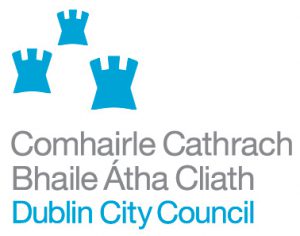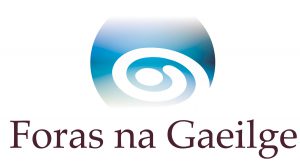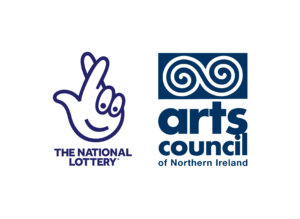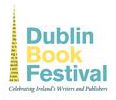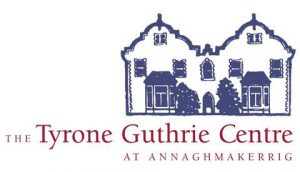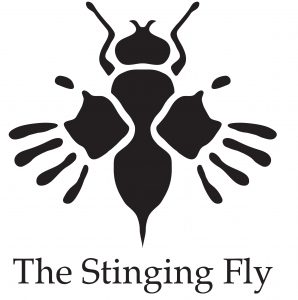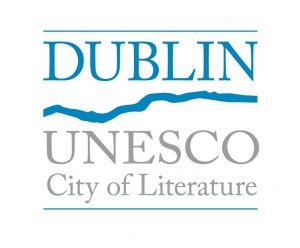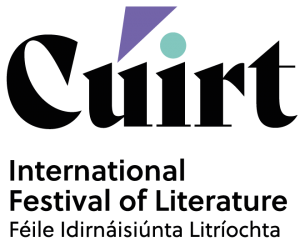28 November, 2016
Beyond words
Recently we were thrilled to launch our 25th anniversary anthology, Beyond the Centre: Writers in their own words, at the Crescent Arts Centre in Belfast on 16 November. We were even more delighted when Carlo Gébler agreed to help us launch the anthology, little did we know that his speech would be a tribute not only to the Centre — but to the writers who comprise such a vital part of it. Read on for Carlo’s full speech.

Jeremy Brooks revealed his last novel Smith as Hero (1964), took three years to write, enjoyed good reviews, but only earned £1200 in total, so he gave up fiction for journalism. Francis King, sometime British Council employee, revealed that in order to support himself and novel writing: he worked as a reader for Weidenfeld & Nicolson, wrote a weekly fiction round-up for the Sunday Telegraph, a television column for the Listener, and took lodgers in to his house in Brighton with meals, which he cooked himself, included in the rent. Penelope Fitzgerald described how the managing director of Duckworth, Colin Haycroft wondered if an advance of £200 on her first novel The Golden Child (1977) was acceptable to which she replied, to him, ‘No, but I haven’t the courage to say no.’
So that was Albion. Thirty years later, different polity, we find, when we read Beyond the Centre, this marvellous collection of essays about literary culture now, and particularly Catherine Phil McCarthy, Jack Harte and Peter Sirr’s essays, those challenges as politicians would doubtless call them, encountered by writers, well, they haven’t gone away, have they? As several of the writers whose work is contained herein testify it is difficult, very difficult to make a living as a writer. Or, to put it another way, there simply ain’t enough cake to go round: not for writers, and not for the Irish Writers Centre either. This gruesome economic truth runs through the essays in this collection like Bundoran runs through a stick of Bundoran rock. And by the way, yes, I bought some Bundoran rock recently and I know of what I speak.
Now: These essays aren’t only about economics of course. This is an eclectic collection. The contributors have chosen to approach their brief from many different angles, not just the financial one and the book is the stronger for its breadth but it is, if any in power chose to read it, a bracing read because what would be born in on them is that the rewards for making literature are meagre. However, this is not artefact simply of complaint. There are complaints, yes, and the Irish state, its political elite and its arts bureaucrats get a quite a roasting, and fair enough, but this is also emphatically a book that celebrates collaboration, communal activity, solidarity between like minded souls and describes what people have done by pulling together.
Orwell wrote a marvellous essay on Dickens. It was inside the collection Inside the Whale. I love Orwell and in this essay I was particularly captivated by this, which I think Lisa McInerney, because of her contribution on culture and class in this collection, might particularly like:
‘If you hate violence and don’t believe in politics, the only major remedy remaining is education. Perhaps society is past praying for, but there’s always hope for the individual human being, if you can catch him young enough. This belief partly accounts for Dickens preoccupation with childhood.’
I personally don’t believe in violence and I despair of politics and our politicians, so all I have left is education. That is, actually, all I believe in and that is indeed, in the widest sense what the Irish Writers Centre offers, as these essays also attest. You’re probably now thinking, What’s he talking about, the classes, the courses? Well, yes and no. They are educational and they are a core part of the Centres activities. The Irish Writers Centre has helped writing by teaching people to write better and in the process has helped writers by employing them to teach people to write better. Hooray. But I’m not talking about just that kind of educational endeavour, the pedagogical variety.
So am I talking about the huge number of happenings, events, readings, and the way the Centre has acted as an impresario for cultural activity, literary mostly, and that is in and off it self a jolly good thing. Again, yes and no. These are great. They introduce to readers writers and the work of writers they might not know. Fabulous. What’s not to like? And it is educational.
But the kind of education I’m talking about is the wider, deeper, fuller variety, the kind that raises consciousness, the kind that transforms actual thinking patterns and enables thereby, what hasn’t been thought before to be thought and then enacted, put in to practice, actualised.
And the basis and enabler of this consciousness raising is the utterly unpredictable but incredibly liberating, stimulating intellectual miscegenation that occurs by virtue of the Centre being a centre. Because it’s a centre people go to it. They bring ideas, literatures, attitudes, habits and social practices. They meet other people, talk, interact, blah blah, and all this psychic material gets mixed up, and then it gets churned around and then it gets broken down and then and then it reforms in to something not previously considered or imagined and then hey presto something new has arrived. This has been going on since the Centre started. Obviously a lot of what’s been made is written but there’s a lot more than texts made there and, moreover, we can name these things. The list is long, I’ll just list a few examples (don’t take it personally if you’re left out) the Liffey Project, the Bloomsday thingamajig, the Dublin Writers Festival, the UNESCO designation of Dublin as a ‘City of Literature, and a host of trade or industrial organizations and bodies. Other bodies were involved but the Centre was of some service in the case of these and more and these are the kind of educational outcomes that I believe in. I believe in things, programmes, rituals, whatever, that go out in to the world and change it for the better as all of the things that have come out of the Centre have done and I believe these things in turn, have an educational remit because they, in turn, all raise consciousness. You see, I have a thesis. There is a virtuous circle.
The world, at the moment, is not a happy place. We live in a mad world and we, writers, artists, what ever you want to call us, we have a job. Our job, to paraphrase Mencken is to afflict the comfortable and comfort the afflicted, or so I believe, and we do that by raising consciousness also in what ever way we can and the Centre’s function is, in every way, to enable that, and it has, and it does. It’s been doing it brilliantly for the last quarter century, as the essays attest, and I believe there is every certainty, given the people in charge, Valerie Bistany et al, I believe that there is every certainty that it will continue to fulfil this vital function. And in that endeavour it will certainly have my absolute and unqualified support.”
Carlo Gébler
Wednesday, 16 November 2016
Crescent Arts Centre, Belfast
Beyond the Centre: Writers in their own words is available now from New Island Books, just in time for Christmas!


